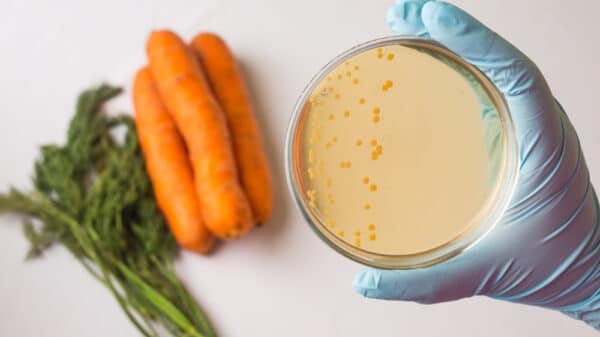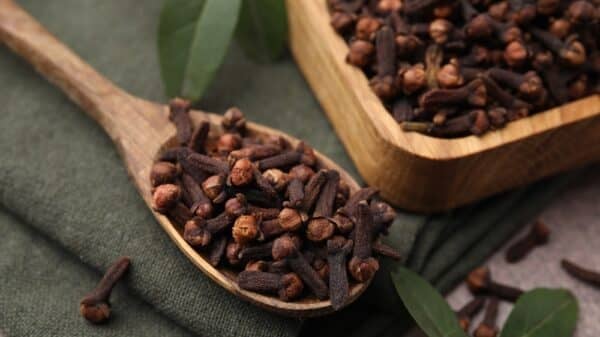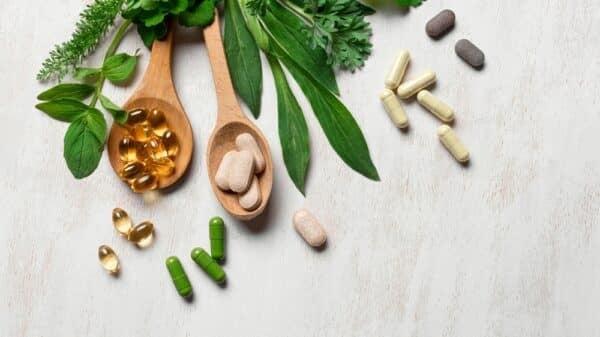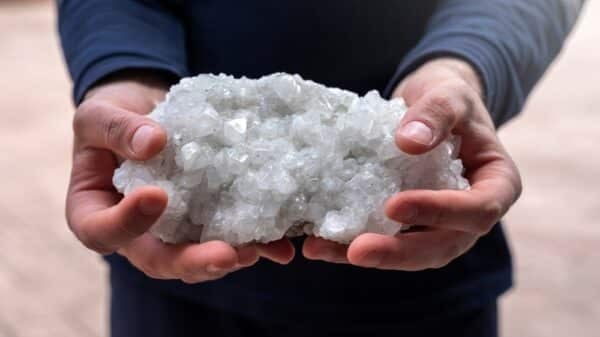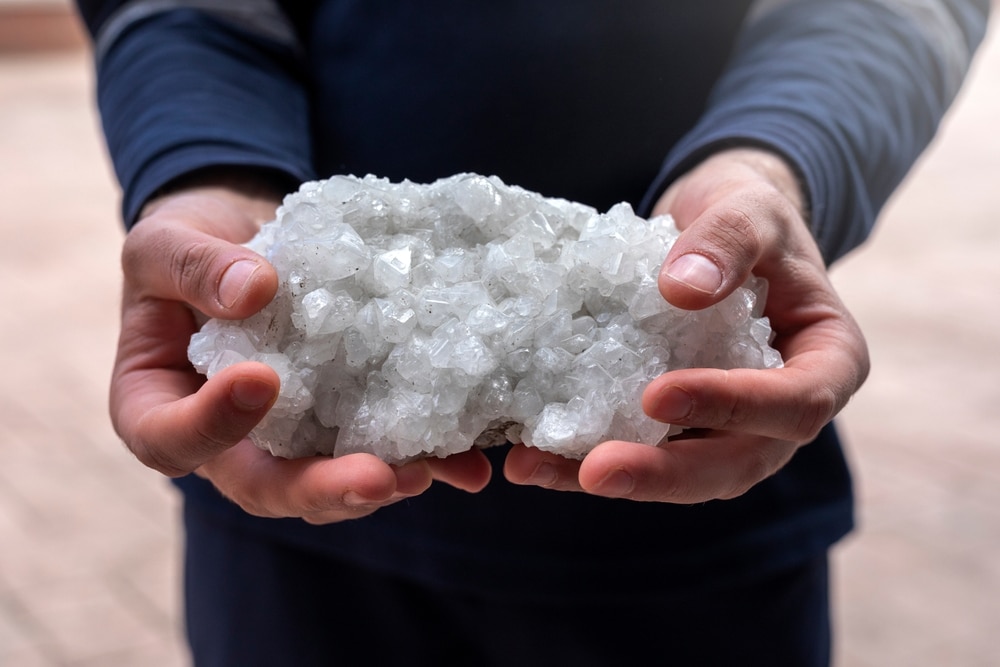highest daily intake level regarded as safe for most adults—is set at around 20 mg. Davis emphasizes that it’s essential to focus on obtaining boron from whole food sources, such as fruits, vegetables, nuts, and legumes. These natural foods not only provide boron but also come packed with other vitamins, minerals, and antioxidants that work synergistically to promote overall health.
Sourcing Boron Naturally
Incorporating boron-rich foods into your diet can be surprisingly easy. Foods like avocados, almonds, chickpeas, and even apples are excellent sources of this essential mineral. It’s a good practice to aim for a colorful plate—variety in your meals helps ensure you’re getting an array of nutrients, boron included.
Additionally, you might want to consider incorporating more whole foods into your cooking and meal planning. Ditching heavily processed snacks and refined sugars can inadvertently help you boost your boron intake while improving overall nutrition.
Potential Risks of Boron Deficiency
While boron is critical, it’s just one piece in the large puzzle of health and wellness. Though deficiencies are relatively rare, low levels can manifest in several unwelcome symptoms. Individuals with insufficient boron may face challenges like weakened bones, poor wound healing, and decreased immunity. If you find yourself feeling fatigued or your joints feel stiff and achy, boron deficiency could potentially be a contributing factor.
To check if you’re getting enough boron, consider whether your diet supports your body’s needs. Keeping a food diary can be a helpful tool. This way, you can reflect on what you eat and identify any gaps in your nutrition that might need addressing.
In Conclusion
Boron might be a lesser-known mineral, but it wields considerable influence over various bodily functions. Harnessing the numerous health benefits offered by this trace mineral may provide the extra boost you need for your overall well-being.
As you navigate your health journey, remember that small dietary changes can lead to significant enhancements in your nutrient intake. Whether you’re keen to enhance bone health, boost your immune system, or improve your joint function, making informed choices can be empowering. Always consult with a healthcare professional or a registered dietitian before making any substantial changes to your diet or introducing new supplements.
Taking control of your health doesn’t always have to involve drastic measures; sometimes, just a focus on a few more wholesome foods can steer you toward a healthier, more balanced life. So, why not start today by adding a handful of almonds or some colorful veggies to your plate? You might just find that your body thanks you with increased energy, improved mood, and even more resilience overall. Remember, every little effort counts!When it comes to understanding boron, many of us might not give it a second thought. Yet, this trace mineral plays a surprisingly significant role in our health and well-being. It’s essential to grasp not only what boron is but the potential impacts of both deficiencies and excesses in our diet.
For starters, it’s critical to know that the level at which adverse effects of boron may begin to emerge stands at around 20 mg per day. While reaching this amount through natural foods is quite challenging, taking boron supplements excessively without guidance from a healthcare professional can lead to some alarming symptoms. Imagine the frustration of dealing with hair loss, fatigue, headaches, and even digestive troubles like indigestion, all from something you thought would boost your health!
One concerning trend is some people opting for borax, a household cleaner, in hopes of increasing their boron levels. It goes without saying—please don’t do this. Using borax in this way poses severe health risks and should absolutely be avoided. Your health deserves better than taking such dangerous shortcuts.
Fortunately, most of us can easily obtain the boron we need through our diets without resorting to supplements. Boron is naturally present in a variety of foods that we readily enjoy. As nutritional expert Dr. Davis asserts, “Boron is present in a broad range of foods, making supplementation unnecessary.” If you’re curious about bolstering your boron intake naturally, let’s dive into seven excellent sources of this essential mineral, as highlighted by the National Institutes of Health (NIH).
First up is prune juice—a drink often associated with aiding digestion. Did you know that it packs a punch with around 1.4 mg of boron per cup? Not only does it work wonders for regularity, but it also contributes positively to your overall health.
Next on the list is the beloved avocado. You might be accustomed to piling this creamy green goodness onto your toast, but it also brings in about 1.1 mg of boron in just half a cup. And let’s not forget the heart-healthy fats, vitamins, and fiber it brings to the table.
Grapes, in all their forms—fresh, dried, or juiced—are another fantastic source. Just an ounce and a half of raisins offers up about 0.95 mg of boron while one cup of whole grapes gives you around 0.7 mg. So, the next time you’re snacking, consider reaching for a handful of grapes or enjoying a cool glass of grape juice.
If you’ve ever bitten into a juicy, sun-ripened peach, you’ll be pleased to learn that a medium peach provides around 0.8 mg of boron, alongside its delicious sweetness and nutritional profile. Perfect for summer snacking, these fruits can make your taste buds dance and contribute to your boron intake.
Let’s not overlook the humble apple, which delivers about 0.7 mg of boron in each medium-sized fruit. This classic snack not only adds crunch to your day but aligns perfectly with the saying, “An apple a day keeps the doctor away.”
Pears are another fruit that deserves a shout-out. A medium pear contains approximately 0.5 mg of boron. These seasonal delights aren’t just tasty; they’re fabulous in baked goods or even as a topping in your morning oatmeal.
Lastly, we can’t forget legumes, which are significant sources of boron. Peanuts provide around 0.5 mg in a single ounce, while half a cup of refried beans delivers the same amount. Cooked lima beans offer about 0.35 mg in half a cup. These options are fantastic for adding variety and nutrition to your meals.
Image Source: Funtay / Shutterstock













